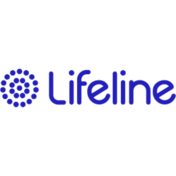Lifeline Australia

Better Health Partner
2025 - 2028
Working together to promote prevention of chronic disease risk and improve health equity for people facing barriers to better mental health.

About the organisation
Lifeline provides all Australians experiencing emotional distress with access to 24 hour crisis support and suicide prevention services, with more than 2.6 million people accessing their services each year. Their services help to create healthy and safe communities through the collective efforts of their 17 member organisations. In many cases, their helpline, digital and community services offer critical early support that prevents further escalation of suicidal thought and behaviour.
From 2021 to 2024 nib foundation partnered with Lifeline to support the development of their online Support Toolkit. This provides access to tools and resources to help Australians keep on top of their mental health.
The project
Building on our previous support for Lifeline’s Support Toolkit, the next stage of our partnership will continue to invest in the Toolkit, with a focus on the needs of culturally and linguistically diverse Australians.
Lifeline's trusted brand, national reputation and wide-spectrum service provision mean they are well placed to support cultural and linguistically diverse communities in times of crisis.
Lifeline will work with community representative groups to better understand the unique challenges faced by people from culturally diverse backgrounds. This will inform how Lifeline extend and enhance their existing services and tailor them to better reflect these communities’ needs.
They will curate lived experience stories and culturally and linguistically appropriate resources from communities and amplify community perspectives through their website and self-support toolkit.
Why it matters
Australia is one of the most culturally and linguistically diverse countries in the world. Around 30% of us were born overseas, 50% have a parent born overseas, and 22% speak a language other than English at home. Research shows that Australians from culturally diverse backgrounds are at a greater risk of developing mental health problems and suicidal behaviours than the general Australian population, are less likely to seek help, and face significant barriers to accessing help when they do so. Yet there is a significant deficit of research into their mental health and help seeking behaviours, making it difficult to fully understand the extent of the mental health and well-being challenges faced by culturally diverse people in Australia.
Our shared goal with Lifeline is to ensure their services are representative of Australia’s multicultural society and that culturally and linguistically diverse Australians can see their experiences and needs reflected in them.

Looking to learn more about Lifeline Australia?
Check out Lifeline Australia's website to find out more.